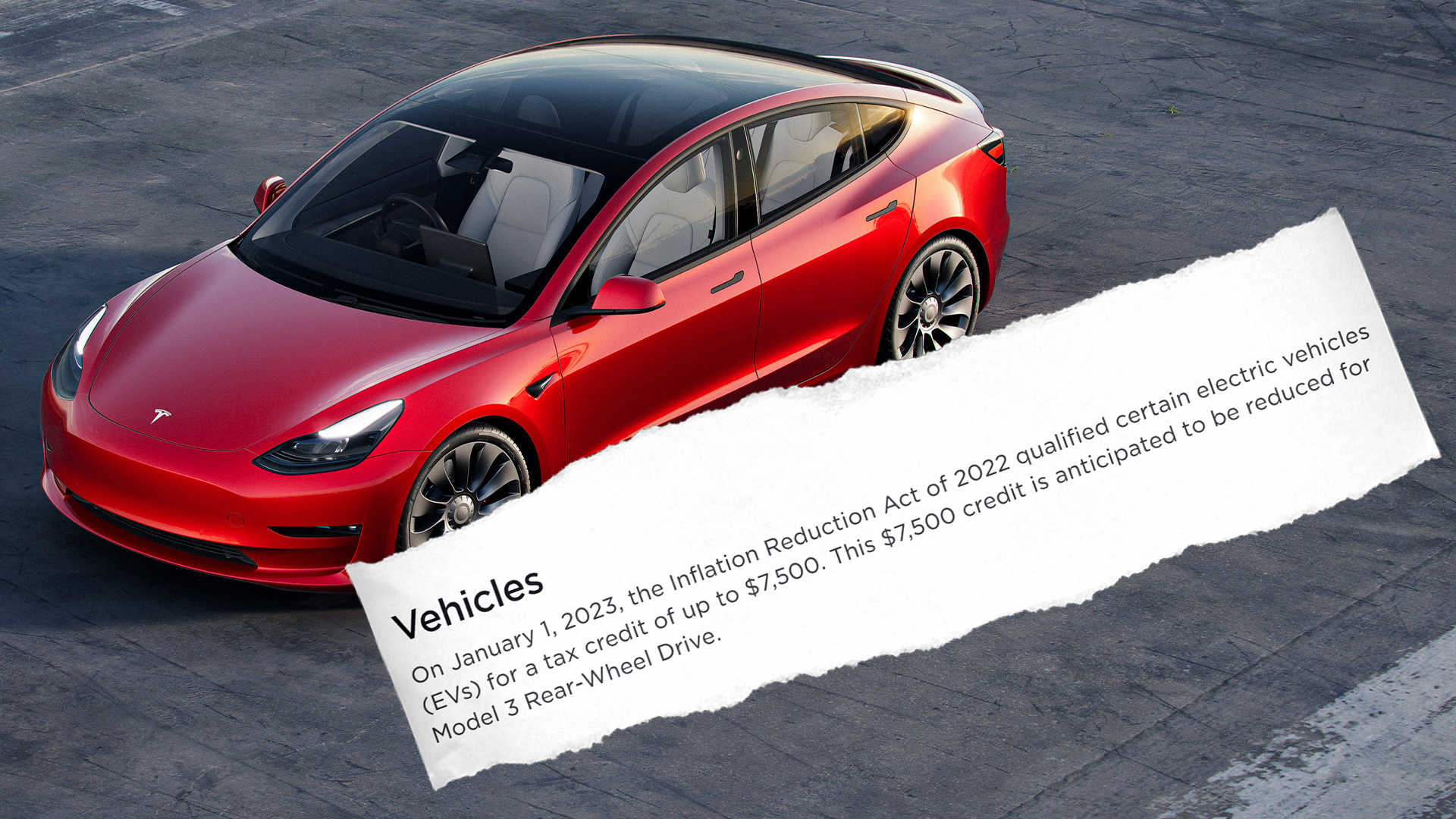

The U.S. Treasury released its final guidance on the EV tax credit Friday, although it’s likely to be far from the final word on what comes next. Initially kicked off by the Inflation Reduction Act of 2022, the EV tax credit effectively “reset” the $7,500 federal tax incentive for buying an EV that some automakers lost after hitting a prior production limit. And after a temporary revision of the tax guidance, the incentive is expected to change yet again.
This time, the guidance includes provisions related to EV battery sourcing, including a ramp-up on domestically sourced components, including critical minerals, until the end of the decade. The changes appear to be fairly concrete to automakers, as reigning EV king Tesla has warned future buyers that the tax credit on newly purchased units of its cheapest Model 3 will soon be slashed.

“On January 1, 2023, the Inflation Reduction Act of 2022 qualified certain electric vehicles (EVs) for a tax credit of up to $7,500,” writes Tesla on its website. “This $7,500 credit is anticipated to be reduced for Model 3 Rear-Wheel Drive.”
What Tesla is referring to is the looming change to the EV tax credit guidance published Friday. The Treasury Department is expected to include a clause that stakes half of that $7,500 credit ($3,750) on battery-sourcing requirements. If a battery is assembled in, or minerals are sourced from a non-free-trade partner, that number will be reduced or, in the case of being sourced from one of the “Countries of Particular Concern,” completely eliminated.
While the $7,500 credit for the Model 3 likely won’t be eliminated, it is expected to be reduced to $3,750 for the rear-wheel-drive Model 3 given that the standard-range version of the car comes equipped with a Lithium Iron Phosphate (LFP) battery sourced from Chinese battery giant CATL. This means that buyers will effectively lose half of the credit once the sourcing requirements are put in place, perhaps as early as today when the guidance is published.

All this said, the standard range Model 3 is still a decent deal. Back when the car first launched, CEO Elon Musk promised a $35,000 version. That variant was short-lived, getting the axe just months after it was introduced. However, when accounting for cumulative inflation between 2016 and 2023, one could argue that Tesla did, in fact, meet its goal. In 2023 bucks, the Model 3 Rear-Wheel Drive comes in at $42,990, which is actually almost $900 less than the $35,000 goal when accounting for inflation.
The $7,500 tax credit is still a big selling point for many. And if Tesla can’t offer that full amount on its most affordable EV, buyers may question the value versus the competition on the market.
According to Bloomberg, Tesla is already working on a solution. Reportedly, the automaker has been working on a partnership with CATL for a U.S. battery plant specifically for its LFP-equipped vehicles. Should that rumor be true, that could help to make its LFP-equipped Model 3s eligible for the full tax credit once again and remain competitive from a price standpoint. But that likely wouldn’t help Tesla immediately if the sourcing requirements go into effect in the near future.
This story will be updated as more information becomes available.
Got a tip or question for the author? Contact them directly: rob@thedrive.com